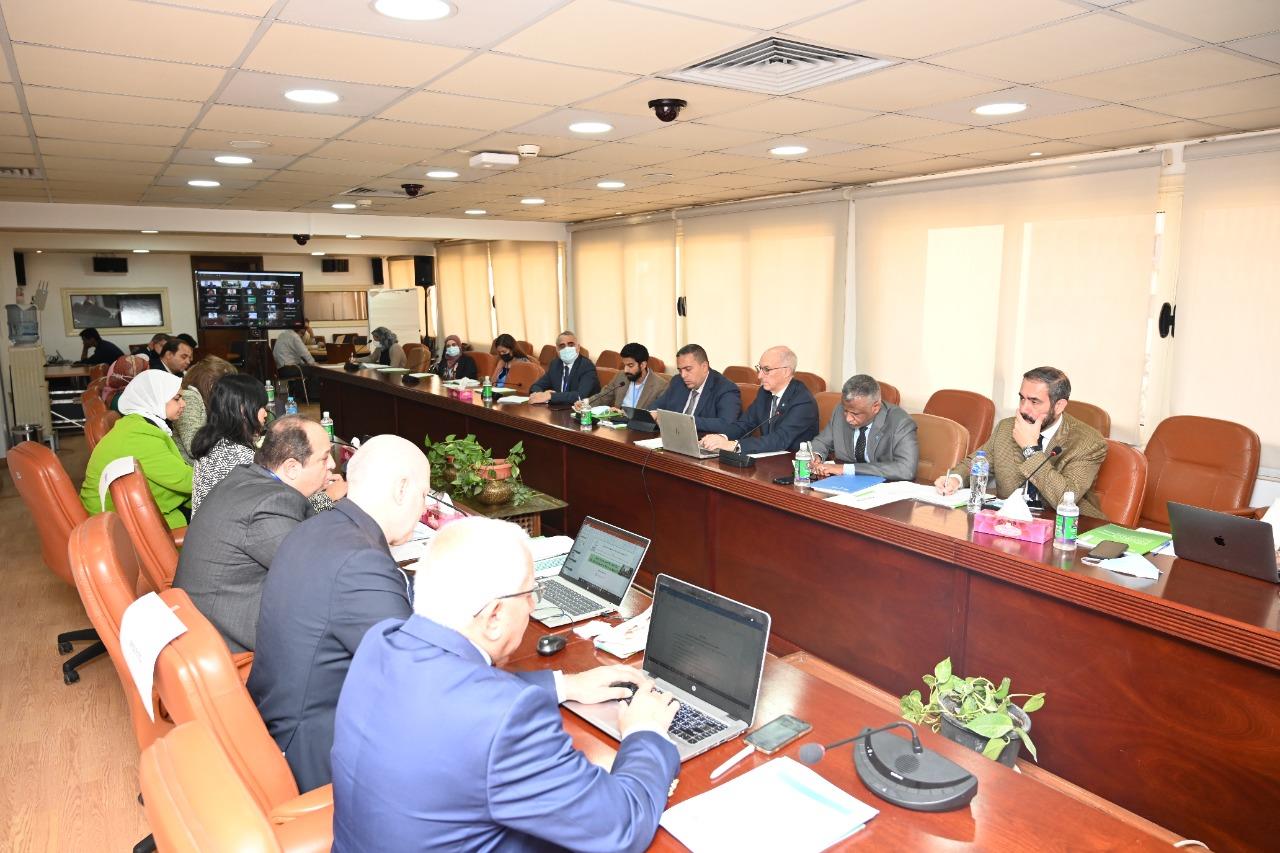Egyptian COP27 Presidency convenes its first consultation on an agriculture and food security initiative, hosted by FAO

April 13-14 2022, Cairo, Egypt – The effects of climate change on food security and agriculture sectors across the NENA region have become apparent over the past few years, exacerbated by conflict, COVID-19 and global food crises. Taking the opportunity of its leadership as host of the 27th session of the United Nations Framework Convention on Climate Change (UNFCCC) Conference of the Parties (COP) to be held in Sharm el-Sheikh from 7 to 18 November 2022, the Government of Egypt is facilitating the launch of a global agriculture and food security initiative.
The initiative aims to focus on the particular problems faced by African countries to access the technical and financial resources needed to adapt to climate change and achieve mitigation co-benefits for the sector. The initiative is set to put agriculture, food security and food systems at the top of the COP27 agenda.
In collaboration with the COP27 Presidency team, FAO hosted the first consultation on the initiative at its regional office for the Near East and North Africa in Cairo. This first consultation was conducted in-person and online. Seventy people participated actively, coming from international and regional organizations, UN agencies, national government agencies, civil society and youth organizations, think-tanks, philanthropic organizations and the private sector. This included the leads of several food and agriculture related initiatives in Africa and globally, such as on climate smart agriculture and agricultural finance, who highlighted the lessons learnt from these efforts.
Opening the session, Ambassador Ayman Tharwat Amin, Minister Plenipotentiary and Deputy Director of the Department of Environment and Sustainable Development from the Ministry of Foreign Affairs and the COP27 Presidency team in Egypt, sought the active participation of stakeholders to shape the objectives, priorities, and roadmap of the initiative, as well as possible sources of funding. Mr. Serge Nakouzi, Deputy Regional Representative of the FAO Regional Office of the Near East and North Africa, welcomed participants and emphasized the importance of harnessing energies from a wide range of stakeholders into the design of the initiative.
During the two-day discussion, inclusion and visibility of small-scale producers was emphasized. Participants highlighted the importance of the participation of women, youth and Indigenous Peoples, and the need for the initiative to support those which lack resources to adopt new innovations necessary to build resilience against climate change. It was emphasized that such participation must also be extended to the composition of the steering committee, which should also have representation from scientific, financial and policy stakeholders.
One of the priorities that emerged from the discussion was addressing the challenges for small-scale producers to access financing. This was even more salient given the climate finance gap in the agriculture and related land use sectors, which lag behind other sectors like energy and transport.
Another priority was the need to develop data and information systems for farm-level decision-making. With a one-stop shop gathering current research and advisories, small-scale farmers could benefit from technology transfer and south-south cooperation, connecting them with available tools. At the same time, climate- and agriculture-related data and information is needed by private sector and financial institutions who must assess, measure and monitor the climate change-related costs and impacts.
Participants agreed on the need for a governance and approach for an initiative that reflected the systemic nature of climate change risks. The interconnected crises of land and soil degradation, climate change, and vulnerability to disruptions in food systems mean that adaptation actions implemented by the initiative have the opportunity to address some of the major challenges facing producers today. Agility in the governance of an initiative should be balanced with the ability to tap on existing networks, and ensuring accountability.
